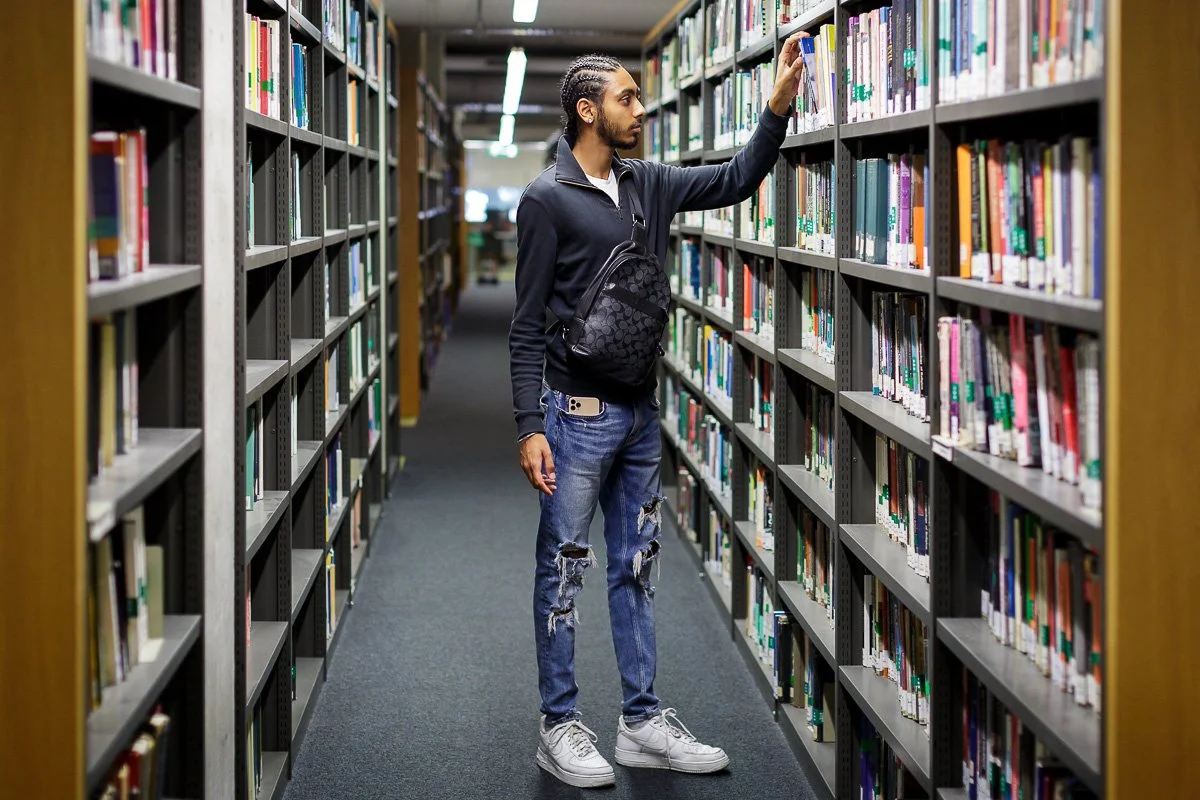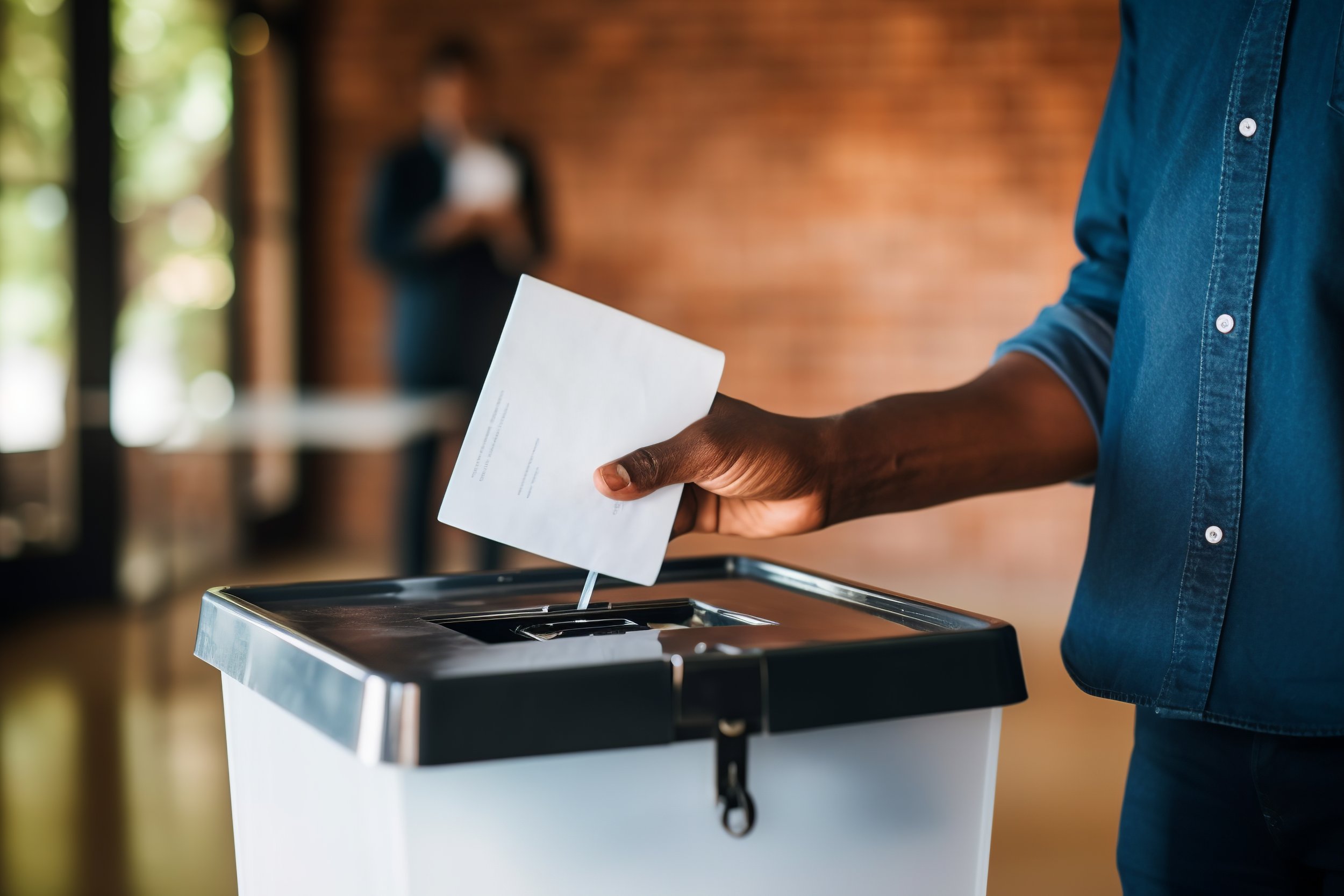
Ramla Ali (LLB 2009) is a professional boxer and model. She represented Somalia in the 2020 Olympics.
Ramla is a UNICEF Goodwill Ambassador and has started Sisters Club, which provides women with a safe place to engage in physical fitness training. She was one of 15 women featured by Guest Editor Meghan Duchess of Sussex in Vogue in September 2019.
She spoke with Professor Laura Hammond (Deputy Vice-Chancellor of Research and Knowledge Exchange) about her life and career.
How do you balance your dual life as a model and boxer?
When I was a teenager, I was bullied in school for being different. I used to shy away from the camera and I hated having to see myself. If somebody told me I would be in front of a camera professionally I would have laughed at them.
Modelling came when I needed it most. I was trying to find a way of making my Olympic dream of representing Somalia come true. One day a magazine wanted to film and take photos, so we charged them. We realised that this could be something, so for every shoot, I used the money to help me get to a training camp or to a competition. So the two, modelling and boxing, went hand in hand.
My first shoot was with acclaimed photographer Nick Knight. I didn't know who he was then, and that's good, because if I did, I would have been more uncomfortable. There were two other athletes and one said “Relax. You’re here because they want you to be here.” I remember watching them and taking tips.
Being comfortable [in front of the camera] didn't happen overnight and even now I'm not completely comfortable; I still ask for direction.
My promoters love that I bring a different audience to fight nights. The people in the fashion world are not necessarily the people in my boxing gym, but I'm fortunate that I can meet all these amazing people from different walks of life and bridge the two worlds.
How do you manage the two? You must go into a fight and get bruises and black eyes.
A few years ago, I had a shoot two days after a competition. I had six stitches across my left eye.
There's always a doctor in the arena because you need to have stitches straight away. I was lying down on the bed and as he's stitching up my eyelid I remember crying. I was in a room full of men and nobody could understand. They thought I was crying because I was in pain but I wasn't, I was crying because I thought ‘I’m not going to be able to make a decent living anymore.’
I turned up on set very sheepish because I thought I'd be sent away, but everybody embraced it. I thought they were going to hide it and touch it up, but they showed it in the photos.
We have perceptions about fashion that everybody has to be thin and six foot tall and you can't be different, but being inside it you realise it's not like that. When I did the cover of British Vogue, it was 15 women and I was the only one facing sideways, because I had a black eye.
You are training right now and fasting through Ramadan. How do you do that?
I've had to educate my coaches about Ramadan. They say ‘can't you even drink water?’, but they’ve been super supportive. I normally train twice a day when it's not Ramadan, two hours in the morning and two hours in the afternoon, but we're combining it into one longer session with more short breaks, especially when I'm dehydrated and dizzy.
You won Sports Person of the Year at the International Somali Awards in 2019.
That day was emotional because it was the first time my mum was okay with the boxing.
I started boxing when I was 12. My GP said that I was clinically obese and it would lead to health complications. My mum doesn't speak English, so it was me translating what the GP was saying, which wasn’t a nice thing to have to say.
I went to the local Leisure Centre to start getting healthy again and I stumbled across the boxercise class and I remember falling in love with the sport.
I don't remember telling anyone [I was boxing] because the Somali community places education first. I knew my parents would think it was going to distract me from my studies, so I kept it quiet.
It was fine when I began, but when I started competing at 17-18, I needed family support. I remember going to competitions against girls who had a sea of friends and family, and I had no one cheering for me and that was hard.
When my family found out, I stopped for a while, but it made me depressed. It was the thing that gave me a compass outside of home and school.
Having my mum come with me to the Awards was a moment that I will remember for the rest of my life. Now, any conversation we have is about the gym, training, and when I’m next competing.
I get positive feedback from the Somali community, which is amazing. When I initially wanted to compete for Somalia it was selfish; it was about what it could do for me to go to training camps and to get to the Olympics. I started receiving messages from people in the UK, Somalia, and the diaspora saying what an inspiration I am and because of me their daughters are taking up sport, or because of me that they've walked into a gym.
I remember thinking that it's no longer about me, it's about making these people proud, and inspiring young girls and young boys to be whoever they want to be.
Where did the inspiration for the Sisters Club come from?
Unfortunately a lot of gyms in the UK are not female friendly and you have unwanted male attention. In 2018, my sister asked if I could create a class for women, so Sisters Club emerged from me volunteering an hour of my time a week to teach women how to box.
It was initially targeted at women wearing hijab, but over time other women started coming. It has grown so much: we now have four boxing classes in the UK and one in New York. We also have a running, a basketball and a football club in the UK, and a run club in Florida.
It's expanding with help from donations from brands like lululemon helping us provide more services. A lot of women tell me ‘because of you, I feel safe to walk alone,’ or ‘because of you, I'm able to take my son swimming and not get out of breath.’ Things like that are amazing because it means that the charity is doing its job.
You're also involved with UNICEF as a Global Ambassador. Tell us about that engagement.
When we [my family] fled Somalia and went to Kenya, we had nothing, we were sleeping on the floor. My mum queued up to get aid from charities; queuing for hours to get food to feed us. When UNICEF approached me I jumped at the chance because charities like them helped my family so much, and to give back is incredible.
A film is now being made about your life and Letitia Wright [best known for her role in Black Panther] will play you. How does it feel to be the subject of a biographical film?
The producer, Lee [Magiday] approached me in 2016. I didn’t want to do it as it felt intrusive to have the world see my life on screen, but she came to watch me compete across England and I remember thinking that anyone who wants this story so much might as well have it. I didn't sign a contract until 2021, so this was five years.
People have said that Letitia and I are similar: our personalities and character and how we hold ourselves, so I know that she'll do it justice. She's taking everything seriously, like learning how to box for a year now. She put me in touch with her voice coach to pick up on my mannerisms, how I say certain words and how I act.
I took her around Bethnal Green to show her where I grew up. There’s a mural of me on one of the buildings and she loved it, and I showed her York Hall where I picked up my first national title.
Tell us about your time at SOAS.
One of my best memories is the Hare Krishna guys. University is expensive and queueing up and getting fed sums up a lot of what SOAS is about.
I didn’t get to hang around too much because after lectures I’d run straight to training. I made many friends though. SOAS is a small university and everybody knows each other. There's a community and it's about giving back.
The three years at SOAS were some of the best times. The lecturers were amazing. In the first year of Law, I did a unit on introduction to Southeast Asian law, and the teaching assistant was the first person to pick up that I had dyslexia – he noticed something in my work, which was really helpful to get diagnosed.
One thing that drew me to SOAS was all the different units. You can't study that in most other universities. I did a unit on government and politics of the Middle East in my third year, which was amazing because it was so different. I enjoyed law, but I always knew I didn't want to be a lawyer. I studied law to make my mum happy.
What advice would you give to students?
I’ve found that if something is important, you always find a way. You shouldn't let anything hold you back from doing what you want to do. Don't let people put you in a box. People said ‘women shouldn’t be boxing’ but if something is for you, you'll make it happen, so keep at it.
Where do you think you will be in five years?
I live every day as it comes. Without making it sad, I had such a horrible start, coming from Somalia to Kenya, to London. We didn’t know if we’d survive. It was hard being a refugee coming to the UK, so I live every day for the now and live every day like it's the last. I never plan too far ahead because I want to enjoy every moment as it comes.
“When UNICEF approached me I jumped at the chance because charities like them helped my family so much, and to give back is incredible.”
Features



